|
My Marshfield ancestors did not fit the Puritan mold. Thomas Marshfield was not wealthy or educated, but had the wits to engage with those in the social class above him and win their support. Within a year of arriving in Dorchester, in the Massachusetts Bay Colony, he publicly confessed his sins and was embraced by the Puritans. Church membership gave him the right to a land grant and a vote on matters of state. Penniless on arrival, he exploited his new connections and profited – for a while. The Governor of the Colony, John Winthrop, had little good to say about him: "There came in this ship one Marshfield, a poor godly man of Exeter, being very desirous to come to us, but not able to transport his family. There was in the city a rich merchant, one Marshall, who being troubled in his dreams about the said poor man, could not be quiet till he had sent for him and given him £50, and lent him £100, willing him withal, that, if he wanted, he should send to him for more. This Marshfield grew suddenly rich, and then lost his godliness, and his wealth soon after." Gov. John Winthrop's Journal Governor Winthrop took the time to write about my great-grandfather to the 9th removed. That impressed me. Marshfield's public fall from grace must have turned heads back then. The stately Governor uses it to offer a stern warning of the perils that await anyone who strayed from God. The first scrap of clue I found, in a 19th-century history of Dorchester, reported that Thomas Marshfield was a founder of that plantation in 1634, along with other Puritan followers of Reverend John Warham, who hailed from the west of England. Two years later, after banging heads with theologians and political leaders from Boston, members of the same flock picked up stakes and walked east to Connecticut. Thomas’ wife, Mercy, and his three young children now were at his side as they followed Reverend Warham to Connecticut, traveling overland. Walking one hundred miles through the chilly woods in the early spring of 1636, the group would have passed winter teepees circled round the smoldering fires of native camps. The natives did them no harm, watching silently as the newcomers scraped across their ancient paths, yet the unknown must have led the settlers to pray to keep the devil and his savage followers far away. When they arrived at what would become Windsor, the squalid huts of a handful of settlers who had survived the previous winter must have been a sorry sight. Thomas Marshfield received his land grant on a hill above the Connecticut river, a strategic lot that bordered those of the plantation’s most powerful men, the preachers and the merchants. Their first task was to start planting, at least two acres of corn for each member of the household. The Marshfield family was small, only five people, but everyone had to work in the fields. Only a few families – the Wolcotts, the Whitings, the Ludlows – could afford to send servants plant their crops. . Long days planting, weeding and harvesting left Thomas and Mercy Marshfield with little time to build a decent house. Some of the wealthy Puritans shipped pre-cut timbers down from Boston and contracted with carpenters to build sturdy houses for them. The non-endowed settlers lived in rough shelters, some of them scratched out of the river bank. George Francis Dow described the primitive shelters in early Windsor in his book, Every Day Life in the Massachusetts Bay Colony : “The bank itself composed three walls of the shelter and the front was a framing of boards with a door and a window. The roof was thatched with river sedge.” I have no idea what type of housing the Marshfields lived in, tottering as they were on the edge of prosperity, but my guess is that Thomas was too busy trying to establish himself as a merchant to spend much time building a house. He presumably had to donate labor to construct fortifications to protect the Puritans from outside attacks in fulfillment of an obligation that was paramount. It is unclear how Thomas Marshfield managed to build his reputation as a merchant given that the beaver trade and any trade with the Indians was granted to only one person in each plantation. For the next four years Thomas sought out investors to finance the procurement of two ships in England to start a trans-Atlantic trade. He found a willing partner in Henry Wolcott, a wealthy landowner and Puritan who backed many ventures in the new plantation, and with Samuel Wakeman, who was already involved in the trade. Thomas left Windsor in 1640 and sailed to Bristol, England, where he chartered the ships Charles and Hopewell. More than a dozen merchants had signed up to ship good with him back to Boston. Then, plans started to go awry. The ships sailed behind schedule and with insufficient food, water and spirits onboard. The crew of the Hopewell was said to be rowdy heathens, tormenting the Puritan passengers onboard. After the ships docked in Boston, many charged that Marshfield had deceived them all. By 1642, more than one dozen claims had been filed against Marshfield in the General Court of Connecticut. Henry Wolcott switched from partner to plaintiff, charging that Marshfield owed him 40 pounds. Wolcott also represented other claimants from Boston while Wakeman, the third partner, was shot and killed in the Caribbean, outside the Puritan settlement on Providence Island. Amid the turmoil, Thomas Marshfield vanished, with no record that he ever returned from England. The court case went on without him and when it was concluded in 1643 with the seizure of all of the Marshfield family property, including their house, land and household goods. Mercy and their three children, Samuel, Mercy and Sarah, were left penniless. Despite his tarnished reputation, Thomas' named was not erased from Windsor history, where he is honored as one of the founders of the town. The Marshfield story does not end here and the next chapter has a few surprises, too! Stay tuned. How is Thomas Marshfield related to me?
His daughter, Mercy, married John Dumbleton in 1650 and their daughter married Thomas Merrick. Chasing the line of their descendants from central Massachusetts to Maine, you find Sara Sykes, a Protestant who married Irish Catholic John Hickey in 1842. Sarah's grandfather was the renown gravestone carver, Joseph Sykes.
1 Comment
2/22/2022 03:58:45 pm
I am also a descendant of Mercy Marshfield and John Dumbleton. :)
Reply
Leave a Reply. |
Names of My AncestorsPuritans & Servants Archives
February 2019
Categories |
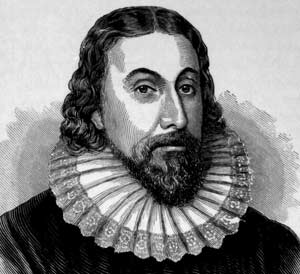
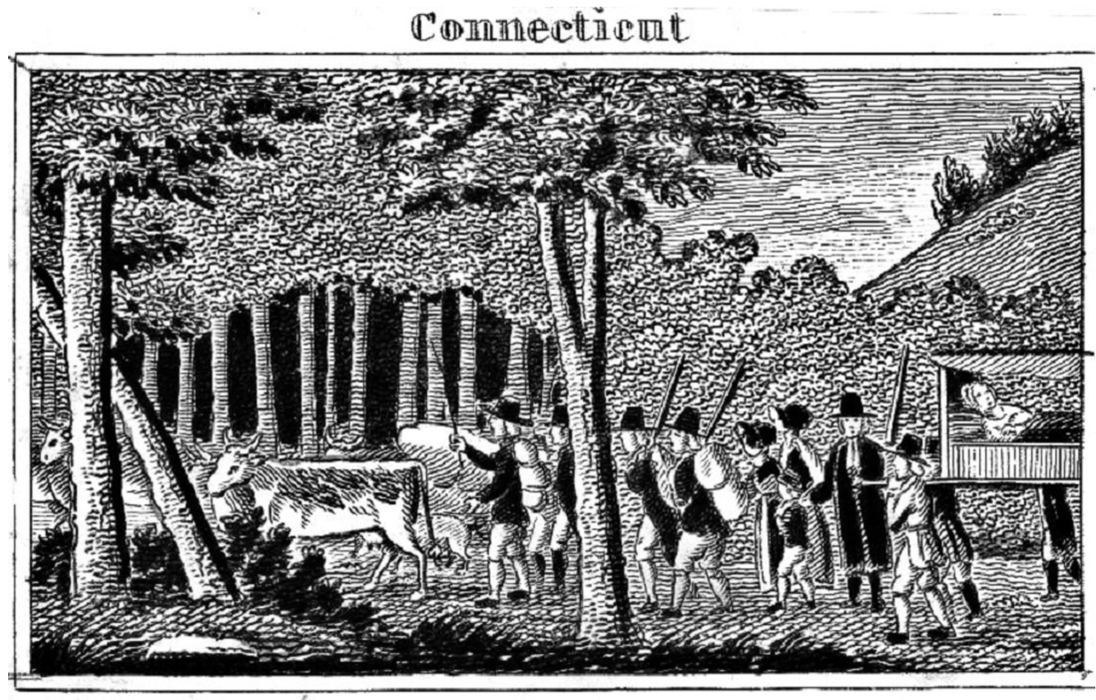
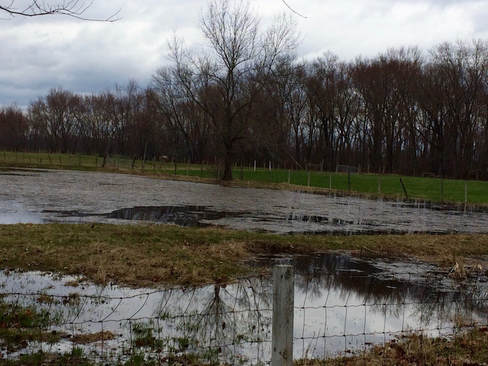
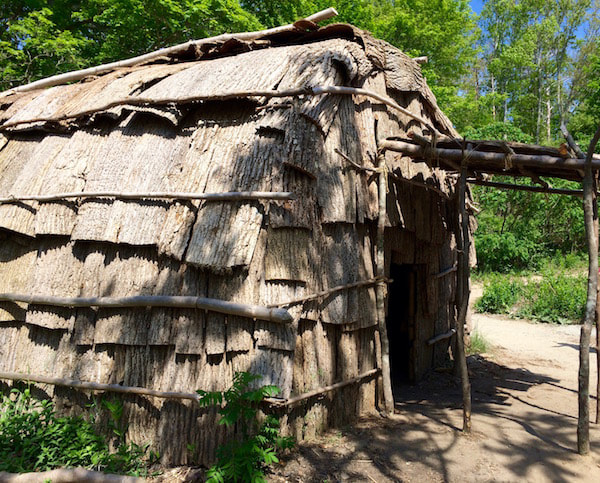
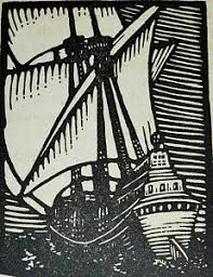
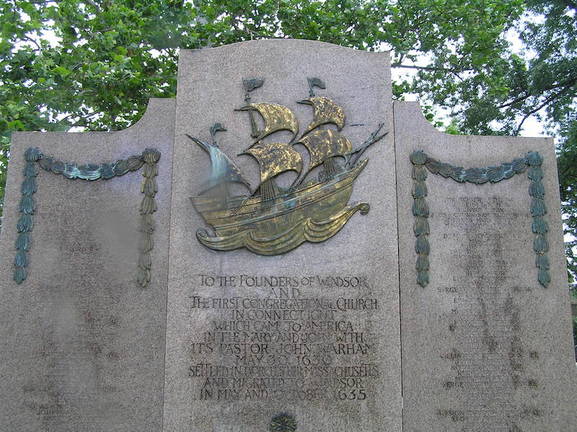
 RSS Feed
RSS Feed
